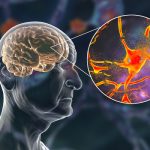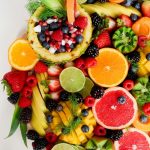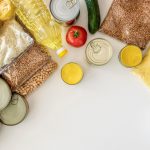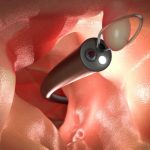By David Blyweiss, M.D., Advanced Natural Wellness
- Foods that fuel the growth of cancer cells
- …and foods that starve them
- Plus! 3 more ways to beat the Big C
These days we hear a lot about the “fight against cancer.” I agree that we should do everything we can to fight this deadly disease. But I also think we should be doing even more to prevent cancer in the first place.
For example, what if I told you there are certain foods that actually increase your risk of cancer, while others have the power to starve cancer cells from your body? Wouldn’t you be interested in learning more?
Well, this is something most doctors never talk to their patients about. But I think it’s a very important discussion that everyone needs to be involved in. So today, I’m going to fill you in on the four types of food that really add to your cancer risk. Then, we’ll take a look at some everyday foods that can fight cancer before it even starts.
Let’s get started…
Cured, smoked and processed meats all have links to cancer. These include meats like bacon, ham, sausage, hot dogs, lunch meat and corned beef. Some of the processes and chemicals used to preserve these meats generate cancer-causing compounds. The risk is so high that the World Cancer Research Fund recommends avoiding processed meats altogether. I heartily agree.
Refined carbs and sugars fuel the growth of cancer cells. These foods provide malignant cells with a steady supply of glucose that they use to gain mass and thrive. To make things worse, excess glucose also affects insulin signaling in a way that directly promotes the spread of tumor cells.
GMO foods are highly toxic. This is especially true of produce that comes from Round-up ready crops. Among other things, this herbicide has been linked to an increased risk of tumor growth, breast cancer, lymphoma and leukemia.
Over-cooked meat is associated with many types of cancer; including cancers of the breast, prostate, colon, pancreas and stomach. That’s because grilling and cooking meat at high temperatures releases cancer-causing chemicals, such as heterocyclic amines (HCAs) and polycyclic aromatic hydrocarbons (PAHs). The longer you cook the meat and the higher the temperature, the more of these compounds are produced.
I’ve always said what you eat is one of the easiest and most effective ways to sidestep cancer. And the solution is really pretty simple: kick these cancer-triggering foods to the curb and start eating ones that stop cancer cells from forming and spreading.
For cancer cells to spread through your body, they require the growth of new blood vessels. This growth of your blood vessels is called “angiogenesis.” Without the formation of new blood vessels, cancer cells die off before they have a chance to cause a problem.
Now, stopping the formation of these new blood vessels has become a cutting-edge field of research when it comes to cancer. And, the results are quite promising.
Today we’re learning certain foods can starve cancer cells by stopping angiogenesis before it even occurs.
“Cruciferous” or “brassica” vegetables contain powerful phytonutrients called sulfuraphane and indoles. These compounds work together to inhibit angiogenesis and control tumor growth. They also help kill cancer cells and protect from DNA damage.
This group of veggies includes arugula, bok choy, broccoli and Brussels sprouts. Cabbage, cauliflower, greens, radishes, rutabaga, turnips and watercress are also members of this family. Eating these foods regularly is linked to lower risk of prostate, colon, breast, lung and other cancers.
Green tea helps decrease the risk of colon, prostate, lung, esophageal and other cancers. It’s the catechins found in green tea that do all of the hard work. They help prevent cancer invasion, tumor formation and angiogenesis. Green tea also helps preserve telomeres, the protective strands of DNA at the ends of your chromosomes. Shortened telomeres have been linked with the development of certain types of cancer.
Grapes and red wine are rich sources of resveratrol. This nutrient slows down the enzymes that can stimulate cancer-cell growth. Resveratrol also suppresses tumor growth and the formation of cancer-spreading blood vessels. (Note: Grapes also contain ellagic acid. That’s a compound that blocks enzymes necessary for the growth of cancer cells.)
Turmeric. This potent curry spice contains the active ingredient curcumin, which affects the gene that causes cancer cells to commit suicide. That process is called apoptosis. It also has anti-angiogenic activity and prevents normal cells from transforming into cancer cells.
Fruits and vegetables high in flavonoids work in many ways to prevent angiogenesis and inhibit the growth of tumors. Flavonoids come by many names, including quercetin, anthocyanidins, proanthocyanidins, ellagitannins, among others. Berries, pomegranates, apples, spinach, onions and cacao are all foods that have high flavonoid content.
You’re probably already eating many of these foods. If so, I strongly recommend eating more of them. And if you’re not, it’s time to start. In the meantime, here are a few more tips to help stop the formation – and spread – of cancer cells in your body…
In addition to eating more of these healthy, antioxidant-rich foods, there are a few more important things you can do to starve cancer cells.
One of the first things is to keep your stress levels in check. Whenever you’re under stress, your adrenal system starts working overtime. There are many reasons why this isn’t good for you. Probably the most important is that stress hormones increase angiogenesis and the growth of tumors.
You can soothe your stress away with activities like yoga, meditation and acupuncture. And make sure to set aside a little time for yourself a few times a week. Soak in the tub, schedule a massage or curl up with a good book.
And, what about your weight? Did you know excess weight and obesity are now linked to angiogenesis? This automatically increases your risk of various cancers. It may also contribute to tumor growth. So, it’s important to take your weight loss seriously if you want to avoid this killer disease.
Last, but not least, give up smoking if you haven’t already done so. To stop, I prefer trying alternative methods like acupuncture or hypnosis before resorting to the patch, nicotine gum or prescription drugs.
Resources:
World Cancer Research Fund/American Institute for Cancer Research. “Food, Nutrition, Physical Activity, and the Prevention of Cancer: a Global Perspective.” Washington DC: AICR, 2007.
Klement RJ, et al. “Is there a role for carbohydrate restriction in the treatment and prevention of cancer?” Nutr Metab (Lond). 2011 Oct 26;8:75.
Gallagher EJ, et al. “The pathway from diabetes and obesity to cancer, on the route to targeted therapy.” Endocr Pract. 2010 Sep-Oct;16(5):864-73.
Séralini GE, et al. “Republished study: long-term toxicity of a Roundup herbicide and a Roundup-tolerant genetically modified maize.” Environmental Sciences Europe 2014, 26:14
Zheng W, et al. “Well-done meat intake, heterocyclic amine exposure, and cancer risk.” Nutr Cancer. 2009;61(4):437-46.
Davis R, et al. “Sulforaphane inhibits angiogenesis through activation of FOXO transcription factors.” Oncol Rep. 2009 Dec;22(6):1473-8.
Li WW, et al. “Tumor angiogenesis as a target for dietary cancer prevention.” J Oncol. 2012;2012:879623.
Wu X, et al. “Telomere dysfunction: a potential cancer predisposition factor.” J Natl Cancer Inst. 2003 Aug 20;95(16):1211-8.



